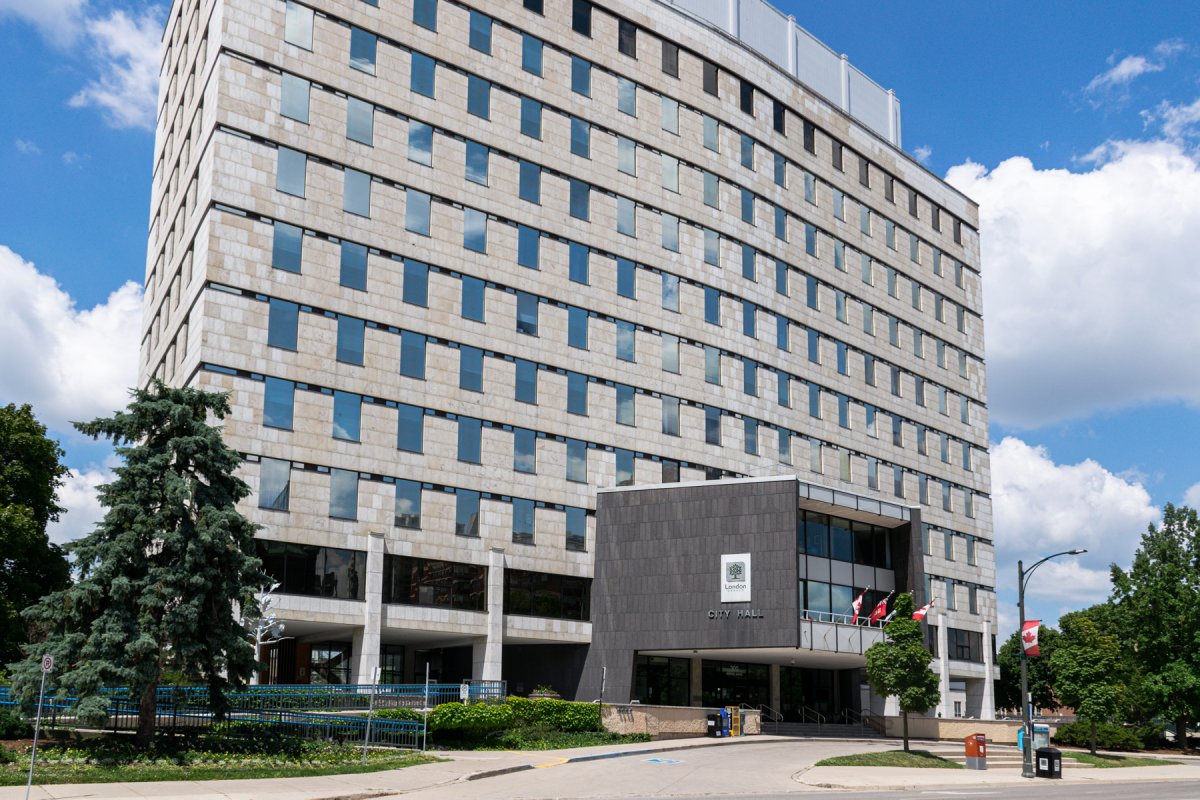As London and Middlesex residents count down the clock for the region to move into Stage 3 of the province’s reopening plans, city politicians will hold a special committee meeting next week devoted solely to the issue of masks and whether to make them mandatory in enclosed public spaces.

The special meeting Monday of the Strategic Priorities and Policy Committee meeting, which includes all members of council, will see the region’s medical officer of health, Dr. Chris Mackie, speak and take questions from councillors about the issue, said London Mayor Ed Holder, who announced the meeting on Wednesday during the health unit’s daily media briefing.
The news comes a day after the same committee voted to have city staff, the health unit, and the county jointly discuss whether to make masks mandatory, and to have Mackie attend a future meeting with councillors and provide advice regarding masks and the city potentially implementing its own bylaw.
“That will be the earliest that council will consider how to deal with this,” Holder said of the upcoming meeting.
“From our standpoint, I think it’s great that we are going to sit and talk together and answer some questions. I think it’ll be a thoughtful dialogue on Monday.”
Monday’s meeting will take place days after the region moves into Stage 3 on Friday (July 17), increasing public gathering limits and allowing most businesses to reopen.
It’ll also come the same day a Section 22 Class Order issued last week by Mackie comes into effect making masks mandatory on transit, in commercial vehicles for hire, and in personal care service establishments.
A regular meeting of city council is scheduled to take place on Tuesday.
Mackie wouldn’t say what advice he would be giving councillors on Monday, but noted he was looking forward to the conversation.

Get weekly health news
“Right now, we’re doing the analysis to make sure that we have all the information to give the best possible advice,” he said.
Earlier in the briefing, Mackie said the health unit was “considering our position on that issue and many others every day,” and highlighted recent research from Massachusetts that found infection rates among hospital workers “dropped significantly once all workers were required to wear masks,” according to the Boston Globe.
Holder said his office had received hundreds of emails from London residents about the issue of mandatory masking, with a great majority in favour of the idea. Some, he says, “clearly do not want us to be involved in that at all, or just do not want to wear a mask.”
“That’s why it’s so important to have the expertise of Dr. Mackie as we go forward.”

The Middlesex-London Health Unit has reported 640 cases of the virus during the pandemic, about 126.1 cases per 100,000 people, according to Public Health Ontario. Thirteen cases were active as of Wednesday.
“If you look at the largest cities across Ontario, London’s rate is lower than any other major city,” Mackie said. “All of those places where masks have been made mandatory have higher rates of coronavirus disease. It’s not surprising you’d see a different decision there.”
Several areas with similar caseloads to London’s, including Hamilton and Niagara at 144.9 and 165.7 cases per 100,000, respectively, have moved toward making masks mandatory in indoor public spaces.
That being said, mandates have also been implemented in areas that have seen a fraction of the cases Middlesex has.
Huron-Perth and the Kingston region, which have seen caseloads of 42.9 and 49.4 per 100,000, respectively, both have mask mandates in effect, as does Greater Sudbury, which has seen 33.7 cases per 100,000.
Mackie noted during the briefing that while masking played a role, and that evidence was growing that masks were effective in curbing the spread of the coronavirus, it was important to stress that they don’t replace physical distancing.
“Two metres plus masking is much stronger,” he said. “If you’re thinking masking replaces that two metre buffer, it really doesn’t.”
Holder added that there was nothing stopping Londoners from wearing masks regardless of what decision is made by councillors or the health unit.
“There’s so much talk about the potential of a second wave. Let’s mitigate it. And the way we mitigate that is doing the things that we have consistently recommended to individuals in terms of physical distancing and hygiene and mask wearing,” he said.
“You can do that. You don’t need a bylaw to do that.”














Comments